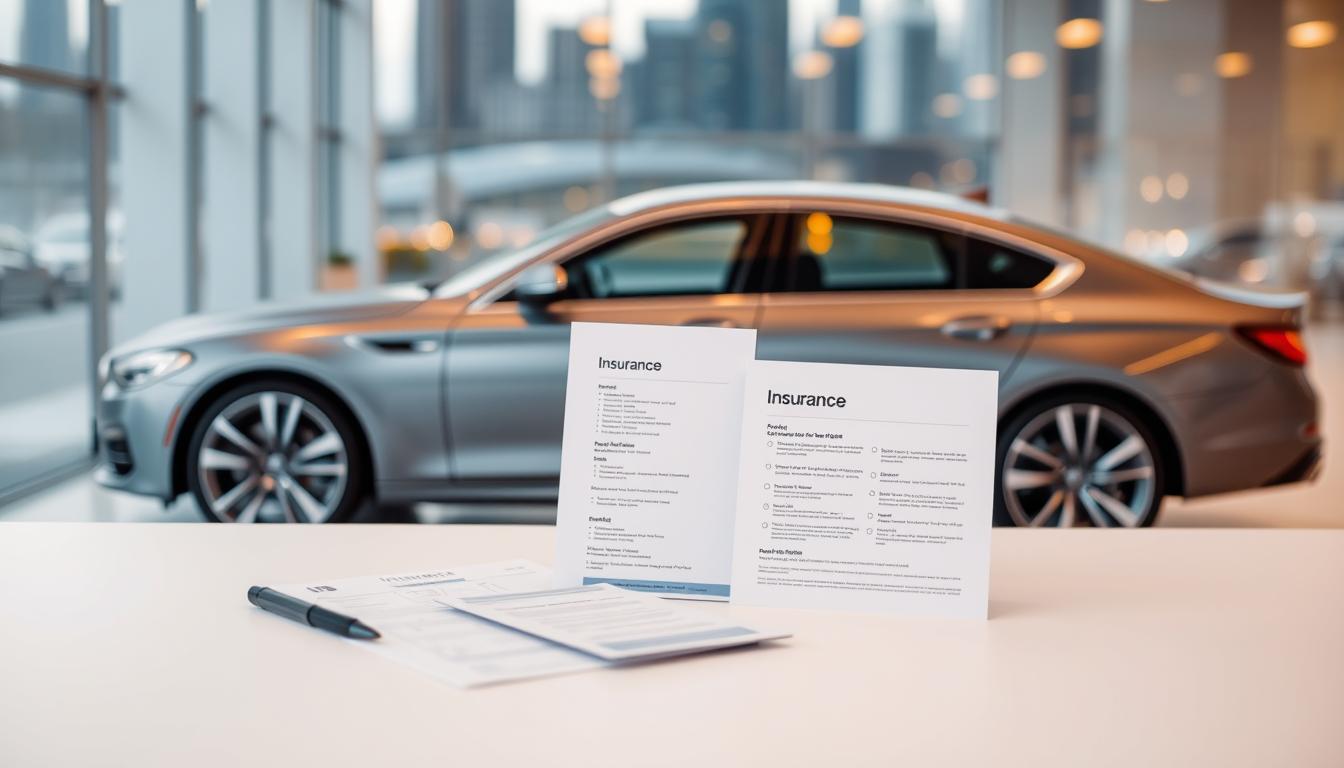More than 85% of new car buyers in the U.S. go for financing. But is it the best choice for everyone? The choice between owning or financing a car depends on your finances, goals, and lifestyle. With new cars often costing over $47,000, knowing the difference is key.
This article helps you decide what’s best for you. Do you want to save money upfront or have more flexibility with your car? We’ll look at both options to find the right fit for you.
Key Takeaways
- Financing offers immediate driving access but locks buyers into long-term payments.
- Car ownership eliminates monthly payments but requires full upfront investment.
- Depreciation impacts both options differently, affecting long-term value.
- Financing terms and interest rates vary based on credit scores and loan providers.
- Which is better: owning or financing a car depends on individual budget and priorities.
Understanding Car Acquisition Options in Today’s Market
Choosing between car ownership versus financing starts with knowing the basics. This part explains how buying versus financing affects your budget and lifestyle.
Defining Car Ownership vs Financing
Car ownership means you have full control once you pay off the loan. When you buy a car outright vs financing, you save on interest but use a lot of cash. Financing lets you make monthly payments, but the lender owns the car until you pay off the loan.
Choosing a loan gives you more flexibility but costs more in the long run.
The Evolving Landscape of Vehicle Purchasing
Today, online sites like Autotrader and Cars.com make buying and financing easier. Loan terms are now up to 72 months, as Experian shows. Younger people see cars as services, not just assets.
Services like Zipcar change how people view owning a car vs getting a loan.
Financial Implications of Different Acquisition Methods
Interest rates can make financed cars more expensive. For example, a $25,000 loan at 5% for 60 months adds $3,400 in interest. On the other hand, owning a car outright means missing out on other investment chances.
Financing spreads out costs but can lead to long-term debt. Important factors include:
- Upfront costs vs. monthly affordability
- Opportunity cost of cash reserves
- Debt duration and interest impact
Owned vs Financed Car: Key Differences That Matter
“The choice between owning and financing a car shapes your financial journey for years.”
When compare owning and financing a vehicle, the difference between buying and financing a car becomes clear. Let’s break down the factors shaping this decision.
Initial Costs and Long-term Financial Impact
Owning a car means paying cash upfront, like $25,000 for a new sedan. Financing spreads out the cost over 60 months. But, you might end up paying $5,000 or more in interest. The pros and cons of owning vs financing a car depend on whether you prefer paying now or later.
- Ownership: Pay full price now, no monthly payments.
- Financing: Lower initial cost, but higher total cost over time.
Freedom and Flexibility Comparison
Ownership gives you full control. You can modify, drive as much as you want, or sell the car anytime. Financing, on the other hand, might limit these freedoms. For businesses, owning a car can offer tax benefits, a big advantage of owning a car vs financing for professionals.
Maintenance Responsibilities and Warranty Considerations
Once warranties expire, owners must pay for all repairs. Financed buyers might have extended warranties, but the lender still owns part of the car until the loan is paid. This affects how you feel about your car: owning it feels like protecting personal property, while financing it feels like sharing assets.
Depreciation and Resale Value Factors
Cars lose value over time, about 20% in the first year. Owners can build equity as loans decrease. But, resale value depends on the market. For financed buyers, selling early might leave you owing more than the car’s worth, a risk in the benefits of owning versus financing a car equation.
Each choice has trade-offs. Use this breakdown to align with your financial goals and lifestyle.
The Complete Guide to Car Ownership
Car ownership brings advantages like freedom from monthly payments and full control over your vehicle. But, it’s important to weigh the pros and cons of owning a car carefully. This guide will help you make the most of car ownership while avoiding risks.
| Pros of Car Ownership | Cons of Car Ownership |
|---|---|
| No loan payments after purchase | High upfront cost |
| Custom modifications allowed | Full responsibility for repairs |
| Potential long-term savings | Risk of opportunity cost (savings used for purchase) |
Here are some tips for owning a car:
- Stick to a maintenance schedule (oil changes, tire rotations).
- Set aside money for unexpected repairs and fuel.
- Save up slowly to keep your emergency fund safe.
The top reasons to own a car instead of financing are for long-term ownership (5+ years) and high-mileage needs. Owning a car fits well with those who see it as part of their long-term financial plans. Think about these points to see if buying outright is right for you.
Navigating the World of Auto Financing
Choosing the right financing options for buying a car means knowing about loans, rates, and your financial goals. Start by looking at different options like bank loans, credit unions, or manufacturer programs. This way, you can find terms that fit your budget. Here’s how to proceed:
Types of Financing Options Available
Financing a car has many benefits, like flexible payments and tax breaks for business vehicles. Check out these options:
- Banks: Lower rates for strong credit profiles
- Credit Unions: Often offer better terms for members
- Manufacturer Programs: 0% APR deals on select models
- Online Lenders: Fast approvals but check hidden fees
Understanding Interest Rates and Loan Terms
A $25,000 loan at 3% over 60 months saves $1,800 compared to 6%. Fixed rates keep payments steady, while variable rates change with the market. Always figure out the total interest costs:
“A 1% rate difference can save thousands over loan terms.” – National Automobile Finance Association
Credit Score Requirements
Lenders usually need credit scores above 660 for the best rates. You’ll need pay stubs, tax returns, and bank statements for applications. Use credit monitoring tools to boost scores by 30+ points before applying.
Refinancing and Payoff Strategies
Refinance when rates drop by contacting lenders directly. Early payoff penalties vary—use online calculators to compare savings. Tips for choosing between owning and financing include thinking about long-term plans. Leasing vs financing a car depends on how much you drive and what you want to own.
Review all leasing vs financing a car pros and cons before signing. Compare monthly costs, end-of-term options, and how easy it is to upgrade vehicles regularly.
Conclusion: Making the Right Choice for Your Financial Situation
Deciding between owning or financing a car depends on your financial goals and lifestyle. The owned vs financed car choice is based on your cash reserves, credit health, and long-term plans. Some people prefer owning because it avoids monthly payments and builds equity.
Others might choose financing to drive newer cars or keep more cash. It’s all about what fits your financial situation best.
When considering buy vs lease car options, think about what matters most to you. Do you want flexibility or stability? If you need tips for choosing between owning and financing a car, look at your budget, how much you drive, and how often you want to change cars.
Financing is good for those who want the latest safety features or to upgrade often. Owning is better for those who plan to keep their car for a long time.
There’s no one-size-fits-all answer to which is better: owning or financing a car. Your credit score, income, and how you use your car will guide your choice. Before making a decision, compare interest rates from lenders like Bankrate or Edmunds.
Use tools like Kelley Blue Book to estimate your car’s resale value. Calculate the total costs over five years to understand how depreciation and maintenance affect each option.
In the end, the goal is to make a choice that fits your financial reality. Whether you own or finance, be clear about your budget and goals. An informed decision today will help you financially in the long run.
FAQ
What is the main difference between owning and financing a car?
Owning a car means you have full control and responsibility. Financing means you make monthly payments until the loan is paid off. The lender keeps the title.
What are the advantages of owning a car?
Advantages include no monthly payments after buying, freedom to modify, and no mileage limits. You might also save money in the long run.
What benefits does financing a car offer?
Financing offers lower upfront costs and the chance to get newer cars more often. It can also help build your credit through regular payments.
Which is better: owning or financing a car?
It depends on your financial situation and lifestyle. Owning can save money in the long run. Financing might let you get a car sooner.
What are some pros and cons of owning a car?
Pros include full ownership and no monthly payments. You also have control over modifications. Cons are the high upfront cost, all repair responsibility, and depreciation.
What financing options are available for buying a car?
Options include bank loans, credit union financing, manufacturer programs, and online lenders. Each has different terms and rates.
How do interest rates affect the cost of financing a car?
Higher interest rates mean higher monthly payments and more total cost over the loan’s life.
Can I refinance my auto loan, and what are its benefits?
Yes, refinancing can lower your payments if rates drop or your credit score improves. It can also shorten your loan term, saving on interest.
What should I consider before choosing between owning and financing a car?
Think about your finances, how much you drive, and what you value more. Consider monthly payments versus long-term savings.
What are the differences between buying outright versus financing?
Buying outright means no debt and full ownership. Financing offers lower costs upfront but has ongoing payments and interest until paid off.
Is leasing a car a better alternative to financing or ownership?
Leasing might suit those wanting lower payments and new cars often. But it has mileage limits and no equity.






This web site is really a walk-through for all of the info you wanted about this and didn’t know who to ask. Glimpse here, and you’ll definitely discover it.
Admiring the persistence you put into your website and detailed information you provide. It’s nice to come across a blog every once in a while that isn’t the same outdated rehashed material. Wonderful read! I’ve saved your site and I’m including your RSS feeds to my Google account.